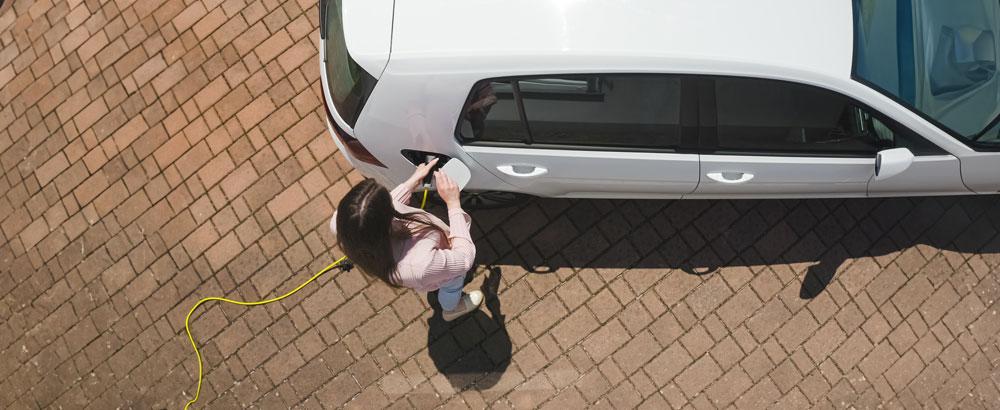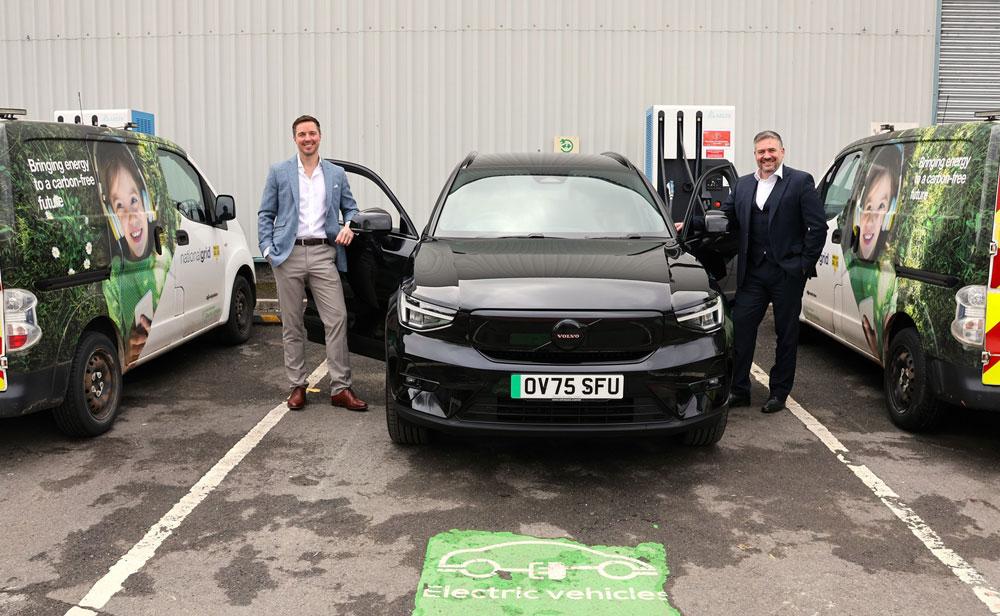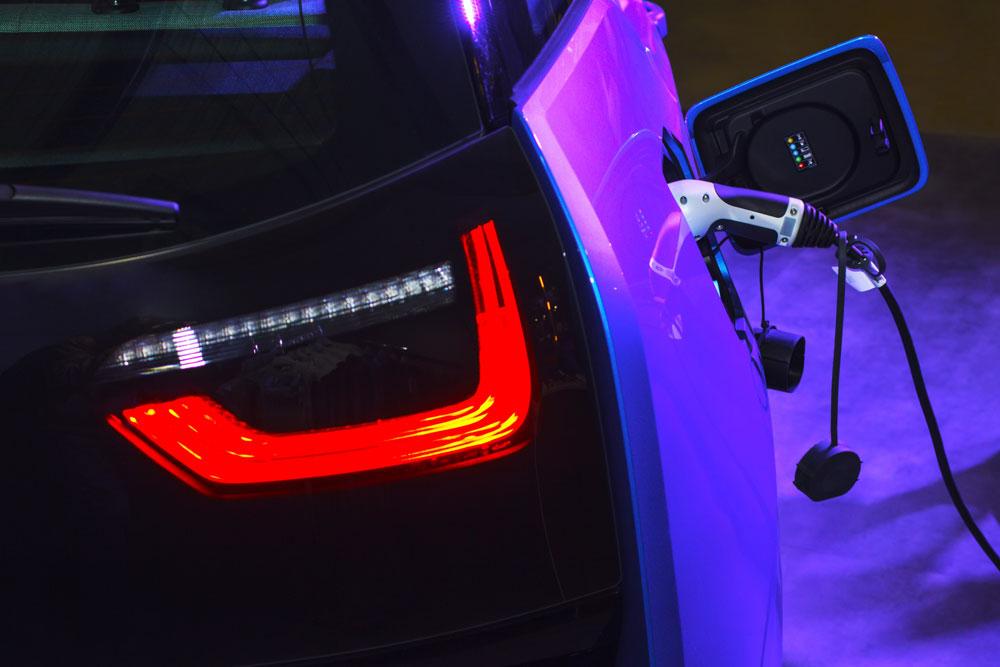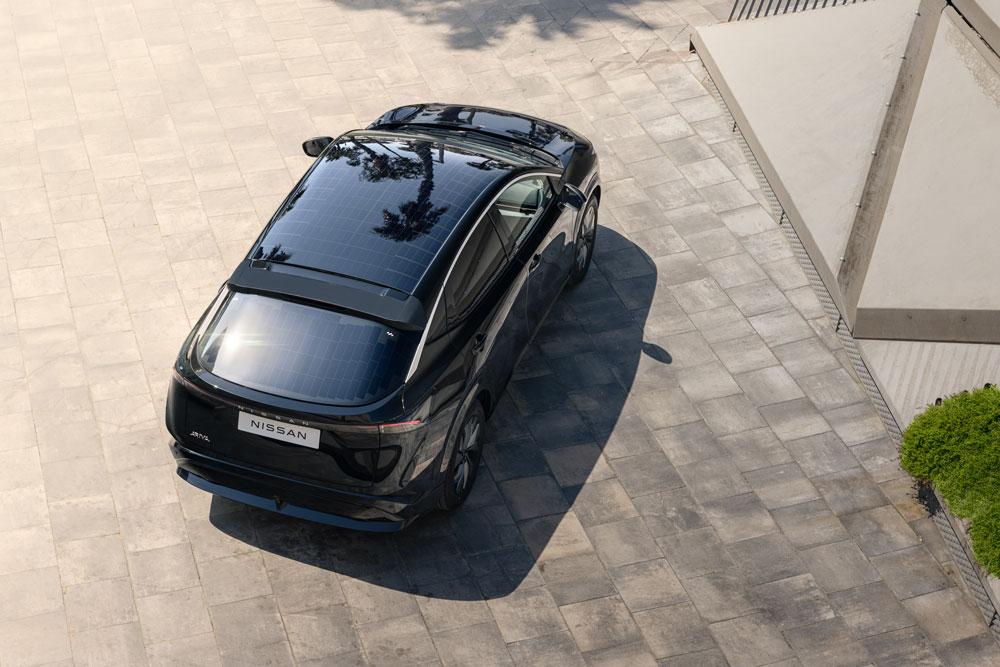The government has various funds to help public and private sector organisations adopt electric vehicles and charging infrastructure. We summarise the schemes available
To help reach the UK’s net zero ambitions, the government has various funding schemes available to help organisations move to electric vehicles. This is while the market is in its infancy, and fleet operators and local authorities are urged to access the funding before it is withdrawn or reduced.
Plug-in vehicle grant
The plug-in vehicle grant remains in place for taxis, motorcycles, vans, trucks and wheelchair accessible vehicles. Buyers do not apply for the grant, it is offered as a discount in the purchase price by the seller.
The grant for small vans apply to vehicles that are less than 2,500kg gross vehicle weight, have CO2 emissions of less than 50g/km and can travel at least 60 miles with no emissions. The grant will pay for 35 per cent of the purchase price for small vans, up to a maximum of £2,500.
The grant for large vans meanwhile is for vehicles that are between 2,500kg and 4,250kg gross vehicle weight, have CO2 emissions of less than 50g/km, and can travel at least 60 miles without any emissions at all. The grant will pay up to a maximum of £5,000.
The grant for taxis can be used on vehicles with CO2 emissions of less than 50g/km that can travel at least 70 miles without any emissions at all, such as the Dynamo Taxi and LEVC TX. The grant will pay for 20 per cent of the purchase price for these vehicles, up to a maximum of £7,500.
The grant for small trucks is for vehicles that are between 4,250kg and 12,000kg gross weight, with CO2 emissions of at least 50 per cent less than the equivalent conventional Euro VI vehicle that can carry the same capacity and can travel at least 60 miles with no emissions. The grant will pay for 20 per cent of the purchase price, up to a maximum of £16,000.
Some large trucks can receive a discount of up to £25,000. To be eligible for a grant, the vehicle must be heavier than 12,000kg, have CO2 emissions of at least 50 per cent less than the equivalent conventional Euro VI vehicle that can carry the same capacity, and be able to travel at least 60 miles without any emissions.
EV infrastructure grant
The EV infrastructure grant for staff and fleets is for small-to-medium-sized businesses in the UK with 249 employees or less. The installer claims the grant on behalf of the business.
The grant covers up to 75 per cent of the cost of installing the infrastructure needed for chargepoints to operate and for future chargepoints to be installed, as well as the cost of any chargepoints installed.
There is a limit of £15,000 per grant and you can get up to £350 per chargepoint socket installed and £500 per parking space enabled with supporting infrastructure.
Each parking space must be associated with a unique chargepoint socket. The socket must be associated with an installed chargepoint or one that will be installed at a future connection location.
The installed infrastructure must support a minimum of five parking spaces with at least one working chargepoint.
The charging infrastructure must comprise of at least a new electrical connection at a metered electrical supply point, such as a consumer unit or feeder pillar, and a dedicated, safe, unobstructed route for electrical cabling from the electrical supply point to the installed chargepoints and any future connection locations.
The chargepoints must supply a minimum of 3kW to each chargepoint socket. This applies when all the sockets installed are being used for charging at the same time. The model must be from an OZEV approved list.
The workplace charging scheme
The Workplace Charging Scheme (WCS) is open to businesses, charities and public sector organisations. It is also open to small accommodation businesses such as B&Bs and campsites, with 249 employees or less.
It can be used with the above mentioned EV infrastructure grant for the same site but not the same chargepoints. Any attempt to claim the same chargepoint twice may be viewed as fraud.
The grant covers up to 75 per cent of the total costs of the purchase and installation of EV chargepoints and is capped at a maximum of £350 per sockets and 40 sockets across all sites per applicant.
These places must have dedicated off-street parking, with spaces dedicated for staff and/or fleet use that are suitable for chargepoint installations. All parking must be designated to the applicant, although the rest of the car park may be shared with other organisations.
Each site must have a minimum power supply of 3kW to each individual socket that is not diminished by their simultaneous use, and have have no more than one socket installed for each accessible parking space. They must be for staff and / or fleet use.
If the primary place of work is also a residential property, such as a home, the scheme can be applied for as long as the address is either listed as the place of business with Companies House or recorded on a business rate (non-domestic) rate bill issued to a local council or Land & Property Services (LPS).
Before applying for the Workplace Charging Grant, applicants are encouraged to discuss their needs with one or more authorised WCS installers.
They must undergo a site survey with an authorised installer to ensure the electrical capacity of the site can support the number of sockets being applied for.
Applicants must also consider the needs of disabled drivers and drivers with reduced mobility, as well as how the chargepoint will be maintained and any associated costs.
Other points to assess include how the cost of electricity usage will be covered, if or how users would be charged.
If the applicant does not own or manage the land where they wish to install chargepoints, they must also secure the necessary permissions ahead of making an application. For example, if the company has access to off-street parking via a garage or private car park that is provided by a third party, they are eligible for the WCS provided the parking space meets all other eligibility criteria. If they do not own the parking space, however, they will be required to gain written permission from the landlord or owner.
Applicants apply for the Workplace Charging Grant online, and if successful, receive a unique identification voucher code by email, which can then be given to any OZEV-authorised installer. Once the chargepoints have been installed, the authorised installer can claim the grant from OZEV on the applicant’s behalf. The chargepoint installation must be completed and the voucher claimed within six months of the voucher’s issue date.
If you apply for less than 40 sockets, you can submit additional applications in the future until you reach that limit.
On-Street Residential Chargepoint Scheme
Local authorities can apply for the On-Street Residential Chargepoint Scheme, which is designed to increase the availability of on-street chargepoints in residential streets where off-street parking is not available.
The funding is for up to 60 per cent of eligible capital costs, with total funding not exceeding £7,500 per chargepoint unless electrical connection costs are exceptionally high. In these cases, funding up to £13,000 per chargepoint may be provided. The remaining costs could come from chargepoint operators, if they are willing to invest capital into local authority projects which allow investment to be recovered over time, or even from the local authority budget, if, for example, the local authority is going to own and operate the infrastructure.
Before embarking on a project however, it is advisable to understand the level of public funding required.
While the scheme is primarily for on-street charging, it can be used in car parks if they are owned by the local authority or another group, where long term leasing agreements are in place, such as a village hall. The car parks must be accessible on a 24/7 basis.
All chargepoints installed through this scheme must have a minimum payment method, such as contactless.






